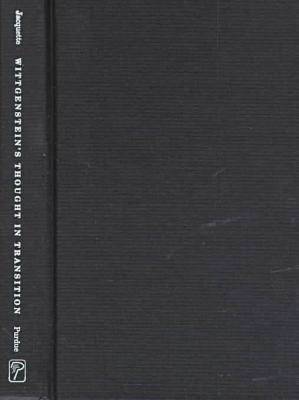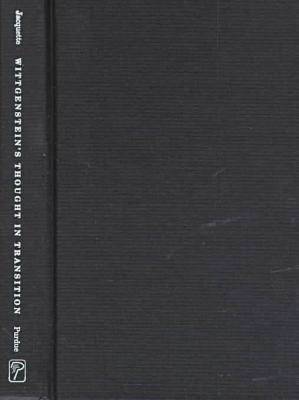
- Retrait gratuit dans votre magasin Club
- 7.000.000 titres dans notre catalogue
- Payer en toute sécurité
- Toujours un magasin près de chez vous
- Retrait gratuit dans votre magasin Club
- 7.000.0000 titres dans notre catalogue
- Payer en toute sécurité
- Toujours un magasin près de chez vous
81,45 €
+ 162 points
Description
Offers a detailed exposition of Wittgenstein's philosophy as a continuous engagement with a single set of problems. The author argues that the key to understanding the transition in Wittgenstein's thought is his 1929 essay ""Some Remarks on Logical Form"" which is reprinted in this book.
Spécifications
Parties prenantes
- Auteur(s) :
- Editeur:
Contenu
- Nombre de pages :
- 356
- Collection :
Caractéristiques
- EAN:
- 9781557531032
- Date de parution :
- 31-12-97
- Format:
- Livre relié
- Poids :
- 333 g

Les avis
Nous publions uniquement les avis qui respectent les conditions requises. Consultez nos conditions pour les avis.






